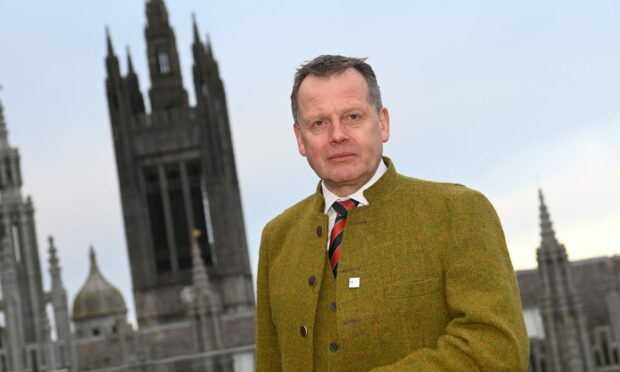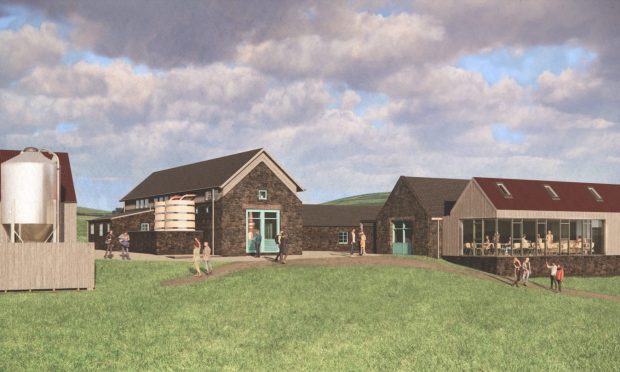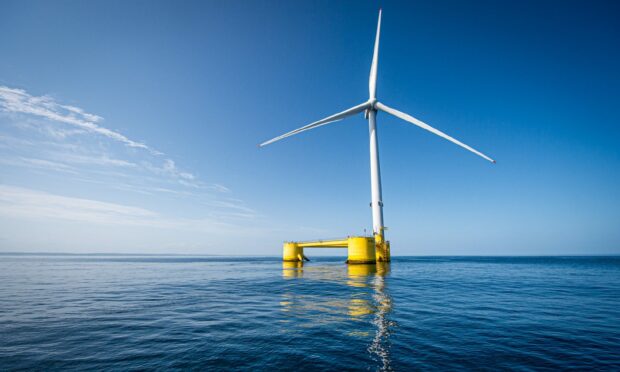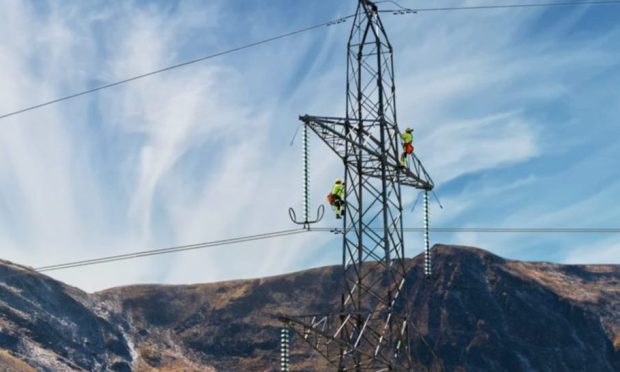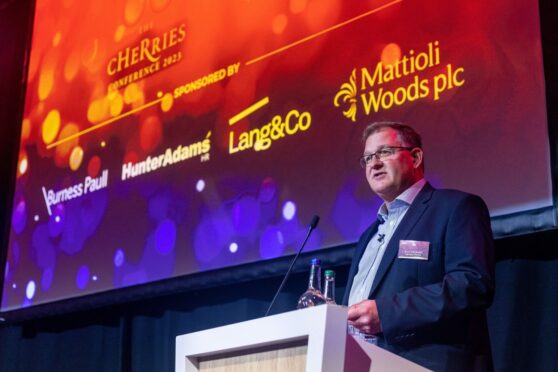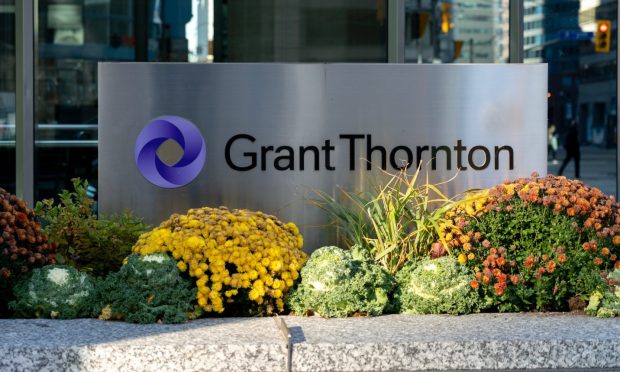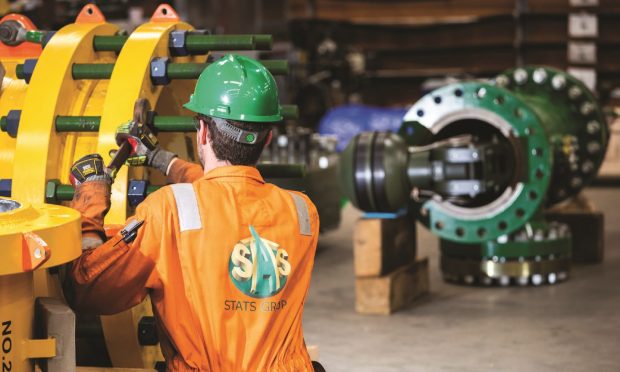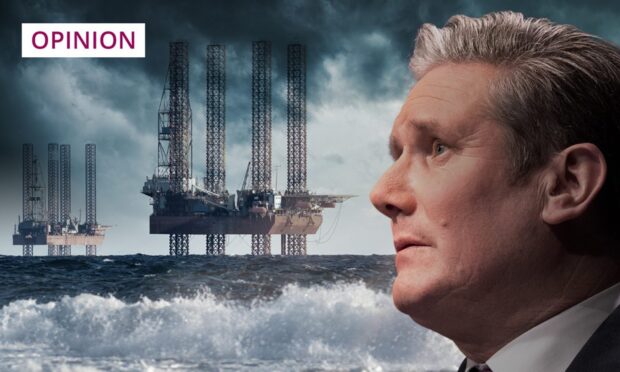Scottish businesses are under growing pressure as concerns over rising inflation and spiralling costs hit their bottom line, a survey has revealed.
Firms taking part in the Scottish Chambers of Commerce (SCC) study reported record levels of concern over inflation.
They also flagged rising cost pressures as the economy restructures following the impact of the Covid-19 pandemic.
Scotland is approaching a critical point in recovery. Businesses are struggling.”
Stephen Leckie, president, Scottish Chambers of Commerce.
SCC said Scotland’s economy was now “entering into a period of increased uncertainty”.
Firms were already burdened with persistent labour market shortages, international supply chain disruption, soaring energy prices and an increasing tax burden before inflation started to climb, the business group added.
Companies are starting to feel the impact of reduced spending as consumers tighten their belts and disposable income drops, hitting cashflow and profits, particularly in the tourism and retail sectors, where recovery remains “lethargic”, SCC said.
And with inflation reaching a 30-year-high, the rapid return to economic growth seen following the removal of Covid-19 restrictions is now plateauing, with firms forced to make “tough decisions” around investment, recruitment, and price rises, it added.
Growing concern about Ukraine
SCC also warned of deepening business concern over the Ukraine crisis, with many firms continuing to seek advice, information and support to make decisions, adapt to rapidly changing circumstances and “navigate the challenging times ahead with further international trade disruption likely”.
Stephen Leckie, president, SCC, said: “The latest Scottish Chambers of Commerce business survey reveals that growth is now levelling off as the complexity of the challenges facing Scotland’s businesses start to take hold.
“Firms are becoming increasingly anxious about rising inflation, energy prices and cost pressures. For too many businesses, the focus is still simply on survival.
“Businesses who have weathered the pandemic over the past two years are now seeing problems pile up, one on top of another, as they struggle with longstanding challenges linked to recruitment, planning and managing change, and are now being hammered by surging energy prices, inflation and falling consumer spending.
“Consequently, Scotland’s businesses are making serious adjustments to operating models and grappling with difficult decisions on whether to absorb price rises or pass them onto the consumer.
“Business finances are also being squeezed by Coronavirus Business Interruption Loan Scheme repayments, rising interest rates and significant business insurance cost rises.”
Raft of other pressures on business
Mr Leckie added: “The prospect of impending additional tax burdens such as the workplace parking levy, transient visitor levy (tourist tax) and the Deposit Return Scheme are further cause for concern amongst already hard-pressed businesses.
“Economic growth is now plateauing because of these rising inflationary and cost pressures – creating an increasingly uncertain outlook for businesses, with international trade and the global economy remaining volatile.
Continued disruption to international trade due to the war in Ukraine, a likely further rise in energy prices and “resurgent” inflation mean businesses will be forced to increase prices further, cut back on investment and protect their cashflow and profits in order to cope with any additional economic shocks, Mr Leckie said.
Now is not the time to pull the rug out from under the business community.”
He added: “Scotland is approaching a critical point in recovery. Businesses are struggling now.
“That is why the Scottish and UK government’s need to urgently rethink the impact of new and increased taxes on business if the economy is to be given the headroom it needs to survive this crisis and grow.”
Firms are “still grateful” for the financial support and assistance provided by both government’s over the course of the pandemic but “now is not the time to pull the rug out from under the business community”, he said.
“Support needs to be reset and realigned with the economic reality,” he said, adding: “Businesses need support now and government intervention must protect the recovery they have worked hard to secure.”
Cost of living crisis: Inflation reaches 30 year high driven by spiralling cost of fuel and food
Chambers’ new president catches mood of north-east business on visit to Aberdeen
“As a priority, the UK Government should seriously consider the introduction of an SME (small and medium-sized enterprise) energy price cap to protect smaller firms from some of the major energy price increases, in the same way that households have been supported.
“The chancellor missed an opportunity in the Spring Statement to deliver for businesses and the subsequent National Insurance increase has been yet another hammer blow for Scottish businesses – adding millions to an already heavy tax burden.”
Mairi Spowage, director at the University of Strathclyde’s Fraser of Allander Institute, a partner for the survey report, said: “Two years on from the first lockdown, it would be great to be optimistic about the economic prospects for 2022.
“Unfortunately, global uncertainties and the cost-of-living crisis, which are not unrelated to each other, have doused that enthusiasm with a bucket of cold water.
“Despite the impact of Omicron in December, the economy is now – as of data in January – back above pre-pandemic levels of growth.
“This milestone in the recovery is of course important, but seems less heartening than it might have done a few months ago given the wider economic conditions.”
